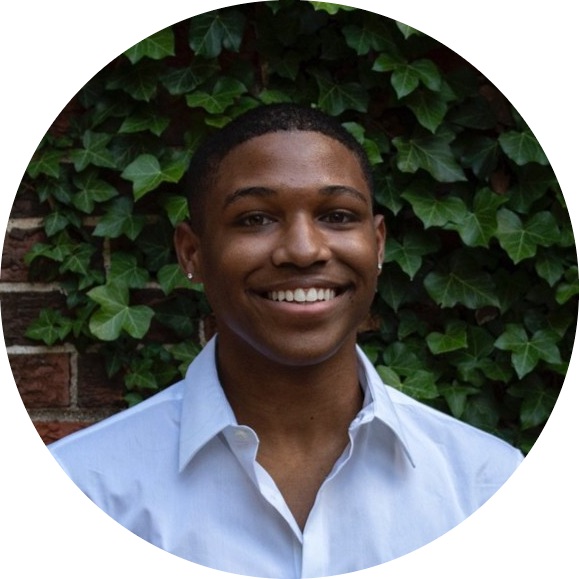How AI is reshaping mentorship for Gen Z workers

This article is part of WorkLife’s special edition, which examines how the jobs and careers of Generation Z professionals will be reshaped and evolve in the AI-informed era. More from the series →
Relationships between a mentor and mentee are among the most important one can have in a career. Mentors answer questions from mentees, help them build skills, provide networking opportunities and can guide career development. Now, a lot of the guidance and value mentors provide are slowly being replicated by AI tools.
Exactly how AI is being used for mentorship varies wildly. Among the more common use cases are predictive AI tools that match mentors and mentees within organizations, which traditionally has been a bit of a hassle for companies to accomplish.
Both predictive and generative AI are also being used to help workers get questions about their jobs answered from sources both within and outside of their organizations, and helping them learn new skills. In time, experts predict, AI will improve how it mimics human mentorship, and potentially do an even better job by making those relationships more accessible and personalized.
“Democratizing mentorship — but I’d say just democratizing development for people — that is one of the greatest areas of opportunity that I see for AI in general,” said Erin Clark, principal in corporate and business unit strategy at Deloitte U.S.
Traditional mentorship opportunities all but fell to the wayside during the pandemic and rise of remote work, as businesses grappled with the new working reality. But just like those before them, younger workers, particularly those in Generation Z, crave guidance early in their careers. That, plus the numerous reports showing that this generation in particular has heightened anxiety – part of which stems from joining the workforce during the pandemic – makes it even more critical that mentorship be a central component of their development.
Mentor matching
Chronus is a predictive AI platform that helps companies scale their own mentorship programs by matching mentors and mentees within their organizations.
It matches people based on preferences, skills, past experience, scheduling and other factors to find the best fit. It collects data on how mentors and mentees answer questions in their own profiles and tracks progress and outcomes when they are matched to determine what’s working best and how to improve.
“There are certain groups that will pound down the doors to get mentorship, and if you let it happen itself, very often it’s people from traditionally disadvantaged groups that don’t get included in that process,” said Chronus CEO David Satterwhite. “We want it to be a systematic process so that you’re leveraging mentorship across the company at any size in a very inclusive way,” he added.
AI assistants and building skills
Some are turning to tools to replace some of the tasks traditionally done by mentors by using generative AI-enabled copilots or assistants. Mentorship can be time-consuming, and mentors can sometimes drop the ball if they’re stretched themselves.
“Conversation and interaction are the key drivers of any mentorship, and one of the things that makes mentorship hard is getting time with people to have those conversations,” said Jason Averbook, a senior partner and global leader of digital HR strategy at consultancy firm Mercer.
While companies are pushing to get people back into the office on a more regular basis, there are still many hybrid and remote setups, meaning that younger workers aren’t necessarily getting the access to senior leaders they would have in the past. That could be casual encounters such as a conversation while making a coffee in the kitchen, asking questions after an in-person meeting, or picking up tips simply by overhearing more experienced workers around them.
To get around this, younger workers are asking ChatGPT questions they might have asked a more experienced coworker in the past, and they’re also turning to generative AI tools to coach them as they learn new skills.
Damaryan Benton, a 22-year-old intern at a PR agency Highwire, has used ChatGPT to help answer questions and get up to speed since starting in the hybrid role six months ago. A key use case is to help understand corporate jargon and what certain phrases really mean. Some examples include asking ChatGPT what phrases like “circle back” mean and how best to politely communicate when your plate is full when asked to take on another task.
“No one really teaches you that and it really puts you at a disadvantage to not know,” Benton said. “It’s been a really good teacher, because over these few months I’ve seen my use lessen.”
Savannah White is a 26-year-old PR specialist at Customer.io, a fully-remote company, and uses tools like ChatGPT during the initial stages of her work like during brainstorming, outlining and while doing background research. She remains cautious and aware of its flaws though and certainly doesn’t consider it that smart — or anywhere close to even mimicking a real human mentor who she would trust and seek advice from.
Most of her friends who also experiment with the tools feel the same way, White said.
Generative AI has caused disarray in the education sector, with students submitting essays entirely generated by ChatGPT, and yet many teachers and professors are leaning into the tech, with an ‘if you can’t beat them, join them’ attitude.
Thomas Guarino, a high school teacher at Harrison High School in New Jersey, has students in his AP computer science class using Sololearn, an AI-powered skills building tool for developers. It’s an app for learning to code, and integrates OpenAI’s ChatGPT platform as a coding “tutor” to help fix bugs, write programs, explain or document what a piece of code does and answer other questions.
Guarino is content with students using this tool because it frees up time for him to have more meaningful conversations with students while encouraging them to take initiative and work through problems themselves. “Don’t be the sage on the stage, be the guide on the side,” he said.
Companies making their own AI mentorship tools
While some companies are turning to open source AI tools, others are developing private large language models to use for mentorship. It’s early days, but some big companies have begun rolling them out.
Morgan Stanley announced its AI@Morgan Stanley Assistant last month, which is based on OpenAI’s GPT-4. Employees input and phrase their questions in the form of a sentence, it then searches through about 100,000 company reports and documents and mimics the investment firm’s “most knowledgeable person,” according to CNBC.
Companies’ private AI tools can better provide a needed component in mentoring relationships — trust — albeit not entirely.
“A lot of mentor and mentee conversations are private conversations, and I don’t necessarily want to have private conversations in a public large language model that’s tied to my name,” Averbook said.
At the same time, “it’s not that people don’t trust systems, people don’t trust the same system that they’re using to figure out where to go to dinner and what to order as they do talking to someone about their career,” Averbook said.
Biggest promises
Personalization is another huge benefit for companies creating their own tools. By training the tool on company-specific responses versus public domain, “that could be a differentiator depending on how mature one organization’s mentor-mentee program is,” Averbook said.
Companies are also starting to employ AI as a way to free up time from human mentors while leveraging data to help them learn best practices and how to be better mentors.
Some companies are using data in the performance review process and creating AI assistants to help managers communicate an employee’s performance feedback in the most effective way, for instance, said Greg Vert, principal and digital and HR transformation leader at Deloitte.
“I think that the concept of mentoring and coaching is broad,” he said. “There’s a lot of things that go into that and it takes years for us as humans to develop that ability, and I think we’re gonna see a similar journey for us to replicate that similar ability with AI,” he said.
AI’s ability to augment, extend and scale human capabilities ultimately holds the most promise from a mentoring perspective.
“One of the reasons that organizations haven’t done more in the mentor program is because they haven’t had resources — you actually have to have people sign up and give a lot of time to be a mentor,” Averbook said.
“Generative AI is going to grow an organization’s mentor program drastically, because there are going to be more people that are going to be able to take part in the program because of what generative AI will be able to help them with,” Averbook said.
Key limitations
But AI of course has its limitations and it won’t be replacing mentors anytime soon. Trust is one key element in traditional mentor relationships it can’t truly replicate. AI isn’t always accurate, sometimes hallucinating and producing false outputs. But that should improve with more time and use, resulting in more quality outputs.
“We know that that trust is built up over time as well just like it would be in a human relationship. The more reliable it is, the more trust will form over time,” Clark said.
Relatability is the next key trait AI can’t yet, and may never fully replicate.
“The effectiveness of a mentor is the ability for the mentee to relate to their experiences and learn from those experiences, so that they can kind of take a different path or maybe even just know they have the comfort that someone else out there has been through what they’re going through. And I think that’s probably the single hardest thing for AI to replicate,” Vert said.



